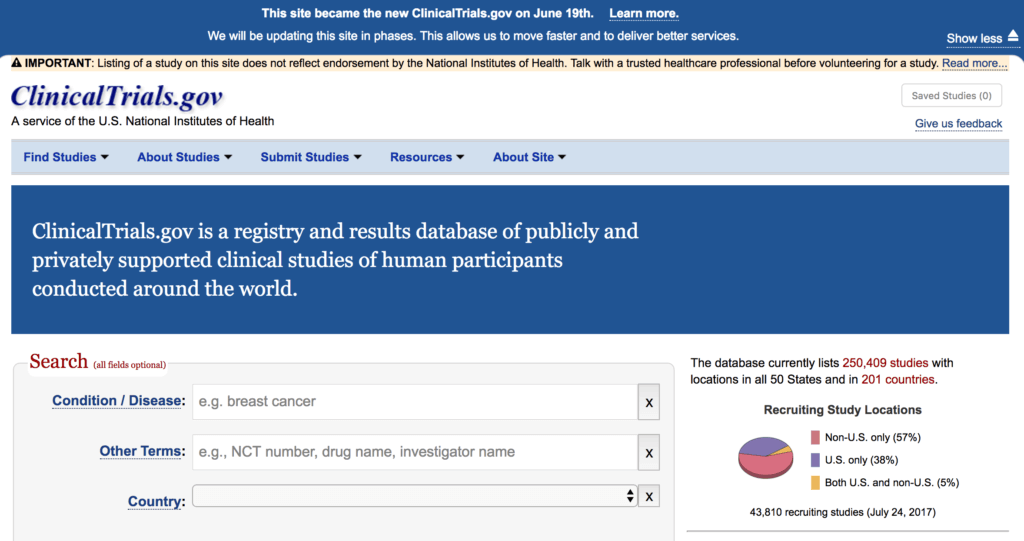Potentially dangerous stem cell treatments are being marketed on a website the federal government established to help patients find experimental therapies, according to a prominent professor of bioethics.
ClinicalTrials.gov is run by the National Institutes of Health to give a comprehensive list of all registered clinical studies around the world. But the site, mandated by an act of Congress, doesn’t properly vet these studies for legitimacy, said Leigh Turner, an associate professor at the University of Minnesota Center for Bioethics.
…
Among the website’s questionable listings are those from companies charging for experimental stem cell treatments — including 11 where the fees aren’t even disclosed, Turner said. Most legitimate clinical trials don’t charge patients for experimental treatment, he and other experts have said…In addition, some studies marketed on the website don’t follow proper ethical and scientific procedures.
…
Over the years, stem cell scientists have voiced concerns about ClinicalTrials.gov. Because the website is operated by a federal health agency, it’s widely viewed as a trusted place for information. Companies that use the site as a marketing tool feed off that trust, Turner said.
[Note: The website, after criticism, subsequently added this note: IMPORTANT: Listing of a study on this site does not reflect endorsement by the National Institutes of Health. Talk with a trusted healthcare professional before volunteering for a study.]
[Read the full study here (free subscription required)]
The GLP aggregated and excerpted this blog/article to reflect the diversity of news, opinion, and analysis. Read full, original post: Dubious stem cell clinical trials marketed on NIH website
































